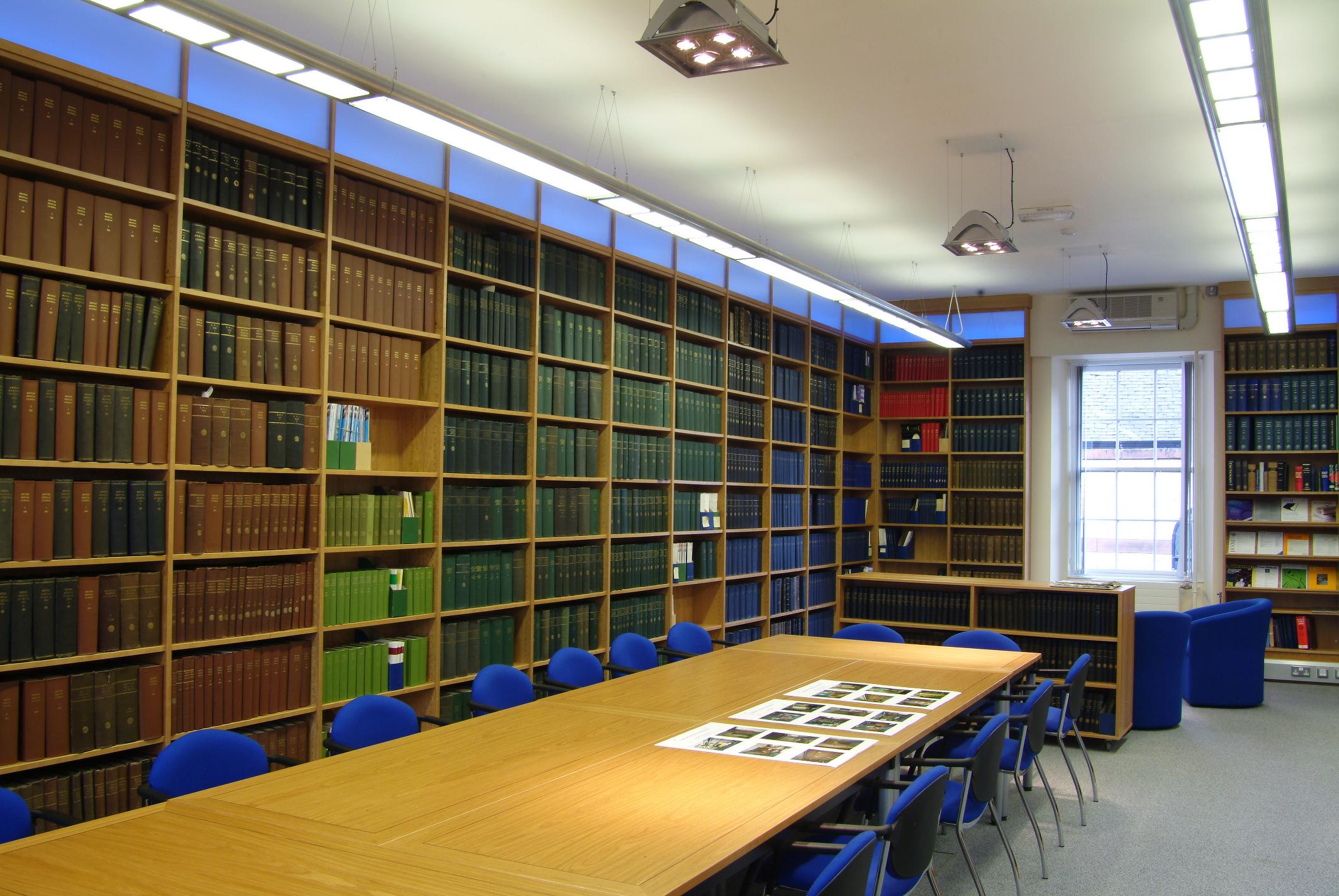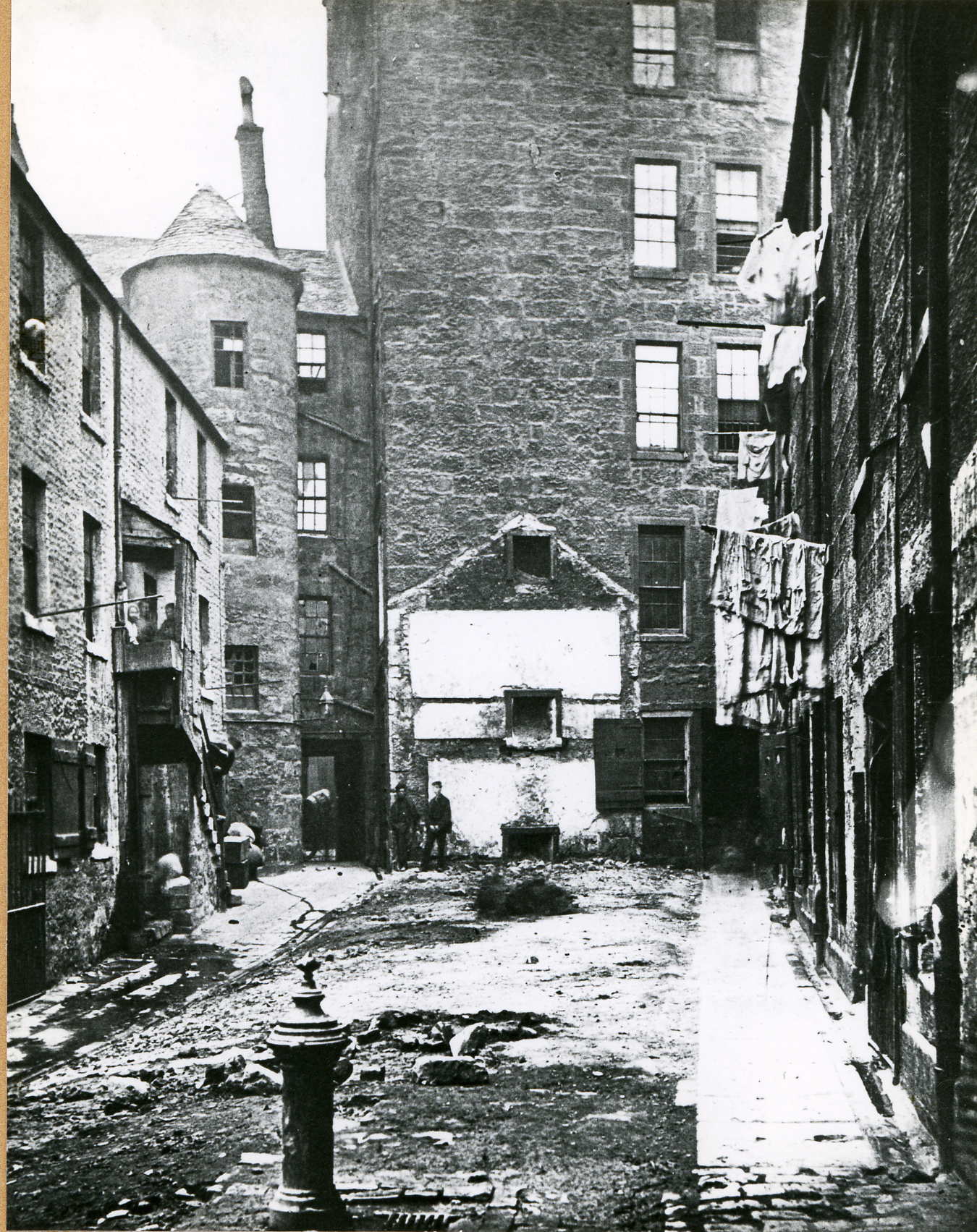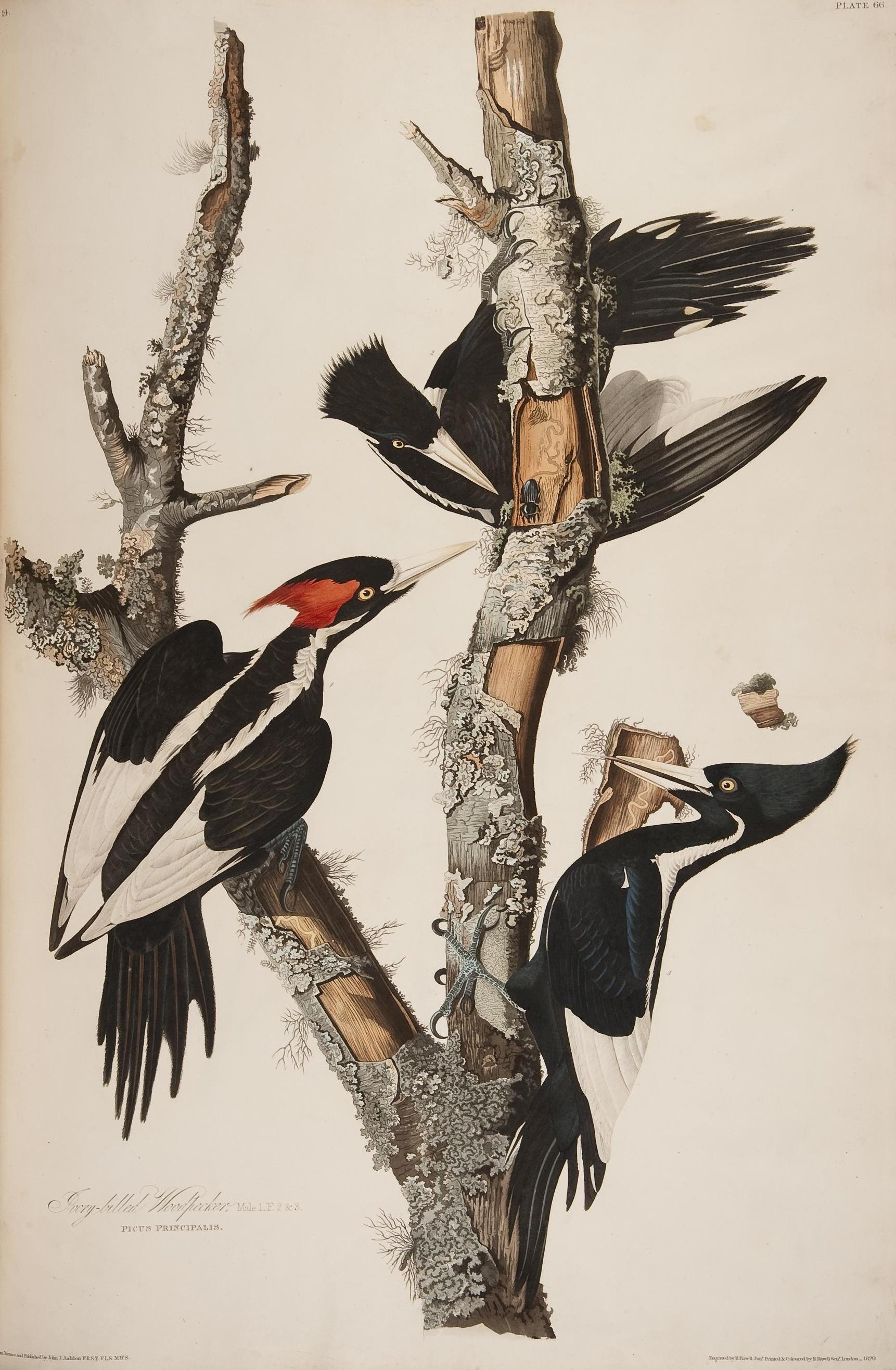Fine art, and the works of a King! Andrew McAinsh and Clare Harrison tell us about some of the hidden treasures of the Royal College of Physicians and Surgeons of Glasgow.
The Royal College of Physicians and Surgeons of Glasgow was founded in 1599, and remains the only medical college in the UK for both physicians and surgeons, as well as having faculties for dentistry, travel medicine and podiatric medicine. The College library was established around 1698, and currently holds about 30,000 volumes, mostly of medical and surgical works from the 16th to the 21st centuries. We are still working on cataloguing some of these items, but the majority of our library collection is now available on our catalogue and via Copac. Our library holdings include copies of such important historic works as Vesalius’ 1543 text on anatomy, “De Humani Corporis Fabrica”, as well as some more unusual items, such as a rare local handwritten 18th century herbal, unlikely to be found in most other medical libraries. We also house a fast-growing collection of modern clinical texts, as well as providing our members with access to a wide range of online medical journals and databases. This means that we are able to operate both as a library with historical resources, and as a modern medical library service.

In addition to our medical works, we hold many items you wouldn’t normally expect to find in a medical library, including an original 1616 copy of the collected works of King James VI and I, who granted the College its founding charter in 1599. Also of particular note is the Glasgow Collection, comprising of books about Glasgow and the West of Scotland. We receive support from the Baillie’s Institution to manage this collection, and to keep books about Glasgow available in the local area. The collection includes materials on life in Glasgow and the history of the city, with the oldest book dating back to 1736. The College holds two of the six copies of John McUre’s “View of the City of Glasgow” remaining in the UK, and these volumes provide some excellent contemporary descriptions and illustrations of Glasgow in the early 18th century. The collection also includes two photograph albums by Thomas Annan, one depicting the slums of Glasgow shortly before the 19th century clearances, and another showcasing the country homes and mansion houses of families associated with the old Glasgow establishment.

As well as the library collections, we also hold the archives of the College, including an extensive run of minute books and a wide range of papers, registers and records relating to the history of the College and its past members. Alongside the College archive collection, there are deposited collections relating to former members and fellows of the College, and several collections relating to medical societies in Glasgow and the West of Scotland. These collections provide fascinating insights into the history of medical education and the lives of medical practitioners in Glasgow and the West of Scotland.
The College archives and the numerous deposited archive collections are excellent sources of information on the many past licentiates, fellows and members of the College, and are therefore often used as a family history resource. In addition to the archives, we hold extensive runs of the Medical Register, the Medical Directory and the Post Office Glasgow Directory. This makes the College library an ideal place for anybody looking to find out more about medical ancestor from anywhere in the UK.
The College’s collection of medical instruments features some fascinating items from the 18th, 19th and 20th centuries, with a particular emphasis on instruments made in Glasgow. There is a wide range of instruments in this collection, ranging from sets of surgical instruments belonging to such distinguished individuals as Sir William Beatty and Dr David Livingstone, to early dental forceps and an amputation set.
We also have a diverse and impressive art collection, featuring paintings and prints in a range of artistic styles. The College offers an annual prize through the Royal Glasgow Institute of the Fine Arts, and the successful painting is often purchased for display in the College and added to the collection. Our complete collection of oil paintings is also featured in the Your Paintings website created by the BBC and the Public Catalogue Foundation – you can view the collection at http://rcp.sg/yourpaintings.
The art collection isn’t limited only to paintings however. As well as objects such as a head study sculpted by Benno Schotz of Dr T.J. Honeyman (the College’s first Honorary Curator of Art), the College library holds a half set of Audubon’s “Birds of America”. These two volumes were purchased for 40 guineas in 1841, and include the first 200 of the 435 prints published by the artist between 1827 and 1838. The birds are depicted life-size, meaning that the books housing the illustrations are double elephant folio sized. The engravings, copied from Audubon’s original drawings, are illustrated in astounding detail and each one is hand-coloured. Visitors to the College can see this beautiful work on permanent display in the library reading room.

The range of our holdings and the services we offer allow us to function as a working medical library for current practitioners across a range of disciplines, as well as a valuable resource on both medical and non-medical subjects for historians, family history researchers and members of the public. You can arrange a visit to the College to use our library and archive resources, or simply to view some of our collections, by emailing us (library@rcpsg.ac.uk). We are also participating in Doors Open Day (http://www.glasgowdoorsopenday.com) and the College will be open to all visitors on Saturday 15th September.
Categories


2 replies on “The Royal College of Physicians and Surgeons of Glasgow – A Medical Library, and Much More”
Absolutely fascinating, I shall shortly be re visiting the vibrant City of Glasgow and will certainly not pass the oppurtunity to indulge in your amazing collection.
Of particular interest to me will be viewing the phenominally influential work ‘de humani corporis fabrica’ by the Great Flemish anatomist, Andreas Vesalius.
I also look forward to viewing Audubon’s beautiful ‘Birds of America’ as well as surgical instuments belonging to the Great Dr Livingstone.
Tom
Hi Tom – thanks for your comments! If you send us an email (library@rcpsg.ac.uk) to let us know what day you’re planning on visiting, we can make sure the reading room is free and have some items ready for you.